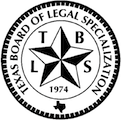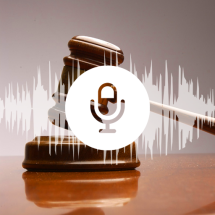Texas Resisting Arrest Attorney
In Texas a person can be charged with resisting arrest if it is alleged they have intentionally prevented an officer from executing an arrest, search, or transportation of the person by using force against the officer. An experienced Texas Criminal Defense attorney can help work passionately on your behalf to defend you from charges for resisting arrest in order to help you get on with your life. We know how frightening, scary, and confusing the entire experience can be, as such, our office will work diligently to try and make sure you completely and fully understand the situation.
Law of Resisting Arrest in Texas
Resisting Arrest in Texas is defined under Article 38.03 of the Texas Penal Code as:
(a) A person commits an offense if he intentionally prevents or obstructs a person he knows is a peace officer or a person acting in a peace officer’s presence and at his direction from effecting an arrest, search, or transportation of the actor or another by using force against the peace officer or another.
(b) It is no defense to prosecution under this section that the arrest or search was unlawful.
(c) Except as provided in Subsection (d), an offense under this section is a Class A misdemeanor.
(d) An offense under this section is a felony of the third degree if the actor uses a deadly weapon to resist the arrest or search.
If this offense is allegedly committed, it must be proven that a person a) prevented or attempted to stop a peace officer from making an arresting, b) in some way prevented a police search for a wanted fugitive (or hid as a fugitive while the officer tried to make an arrest), or c) that you prevented the officer from transporting you or another person they were attempting to take into custody
Possible offenses which could lead to a charge of resisting arrest include the following:
- Preventing/Obstructing a search
- Hindering an arrest
- Hiding from the peace officer to avoid arrest
- Preventing an official person from transporting you from one place to the other
- Hindering the transportation process
- Using some deadly weapon or force to stop the arrest
- Attempt to prevent the arrest
- Impeding transportation needed to make an arrest
- Fleeing or escaping from an arresting officer
- Using force against a law enforcement officer to evade arrest or help another do so
Punishment – Texas Resisting Arrest
The punishment for resisting arrest in Texas is a third-degree felony if a deadly weapon was used, which has a potential range of punishment of not less than 2 years but no more than 10 years in the Texas Department of Corrections (“TDC” or prison), and a maximum fine not to exceed $10,000. In all other cases, it would be charged as a Class A Misdemeanor offense, which carries a potential range of punishment of class A misdemeanor offense, which has a potential range of punishment of a possible jail sentence of up to one year confinement in a county jail, and a fine not to exceed $4,000.
Possible Defenses
Defendants charged with resisting arrest can have several possible defenses to the offense. One possible way is by asserting the affirmative defense of “Self-defense” to the amount of force used against you. Police officers are entitled to use the amount of force necessary, in the circumstances, to accomplish the arrest. But if the arresting officer acts violently and is not justified in doing so, the arrestee may protect himself and resist the arrest. Most importantly, the arrestee himself must exercise self-restraint, using only the force reasonably necessary under the circumstances to resist the arrest. For instance, if the arrestee subdues a police officer who has acted unreasonably, the arrestee cannot then harm the officer further. Another possible defense is that the arrest itself was unlawful. An unlawful arrest is an arrest that is not authorized by law, such as an arrest without a warrant or probable cause. In some states, a person may resist an unlawful arrest, but only with reasonable force. Reasonable force is generally considered to be only the amount of force necessary to resist the arrest.
Contact Us Now
You can contact The Law Offices of Carl David Ceder at anytime for assistance at 214.702.CARL(2275) or at 469.2000.DWI(394). You can also e-mail Carl directly, at [email protected]; or to the office for general inquiries at [email protected]. Phones should be answered 24 hours a day/7 days a week for immediate and prompt assistance. E-mail messages will try to be responded to with 24-48 hours, depending on whether Carl and his team is in trial and/or is busy working on a case for a contested hearing.





















